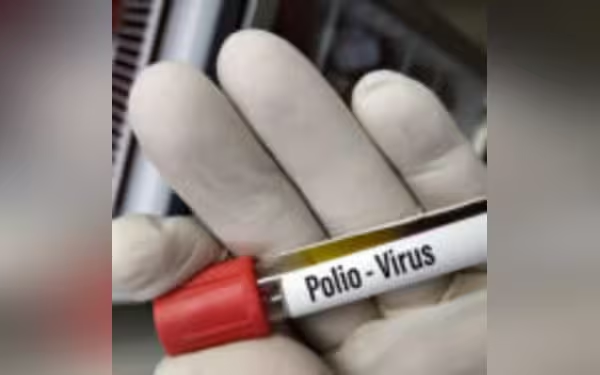Saturday, November 16, 2024 07:47 PM
Pakistan Faces Polio Vaccination Crisis as 500,000 Children Miss October Drive
- 500,000 children missed polio vaccinations in October drive.
- Polio cases rise to 48 in Pakistan this year.
- National campaign aims to vaccinate over 45 million children.
 Image Credits: pakistantoday
Image Credits: pakistantodayPakistan faces a critical situation as 500,000 children missed polio vaccinations during the October drive, amid rising polio cases.
In recent years, Pakistan has made significant strides in combating polio, a disease that can cause paralysis and even death in children. However, the latest reports indicate a troubling trend: approximately 500,000 children may have missed their polio vaccinations during the October 2024 nationwide inoculation drive. This alarming statistic comes at a time when the country is witnessing a resurgence of polio cases, with 48 reported so far this year.
Malik Mukhtar Ahmed Bharath, the coordinator to the prime minister on national health services, has raised concerns about the potential number of children who have either refused the vaccine or missed their opportunity to receive it. While the exact figures are still being determined, the government is bracing for a significant number of refusals. Despite these challenges, Bharath has assured the public that efforts will continue to locate and vaccinate these children.
The rise in polio cases is particularly concerning, as it includes 23 cases from Balochistan, 13 from Sindh, ten from Khyber Pakhtunkhwa (KP), and one each from Punjab and Islamabad. In response to this increase, a national vaccination campaign was launched from October 28 to November 3, with the ambitious goal of vaccinating over 45 million children across the country.
This resurgence of polio cases underscores the fragility of the progress made in the fight against this disease. After experiencing a significant decline in cases in recent years, with only six reported cases in 2023, the current rise in infections is alarming. One of the contributing factors to this surge is the repatriation drive against illegal immigrants, which has led to unvaccinated Afghan refugees spreading the virus throughout Pakistan.
Moreover, the challenges faced by Pakistan's polio workers are not just logistical. Since 2012, more than 90 vaccinators have lost their lives due to violence, and a recent bomb attack on police escorting vaccine teams resulted in the tragic deaths of seven individuals, including five children. These threats have made it increasingly difficult for health workers to carry out their vital mission.
Despite these daunting challenges, Bharath remains optimistic about Pakistan's polio surveillance system, which he claims is among the best in the world. He emphasizes that the vaccination program is still robust, but acknowledges that security concerns and logistical issues, such as refusals and missed vaccinations, continue to impede efforts to fully eradicate the disease.
The situation surrounding polio vaccinations in Pakistan is critical. The potential for 500,000 children to have missed their vaccinations is a stark reminder of the ongoing battle against this preventable disease. It is essential for the government, health officials, and communities to work together to ensure that every child receives the necessary vaccinations. Only through collective effort can Pakistan hope to eliminate polio and protect its future generations from this debilitating disease.













